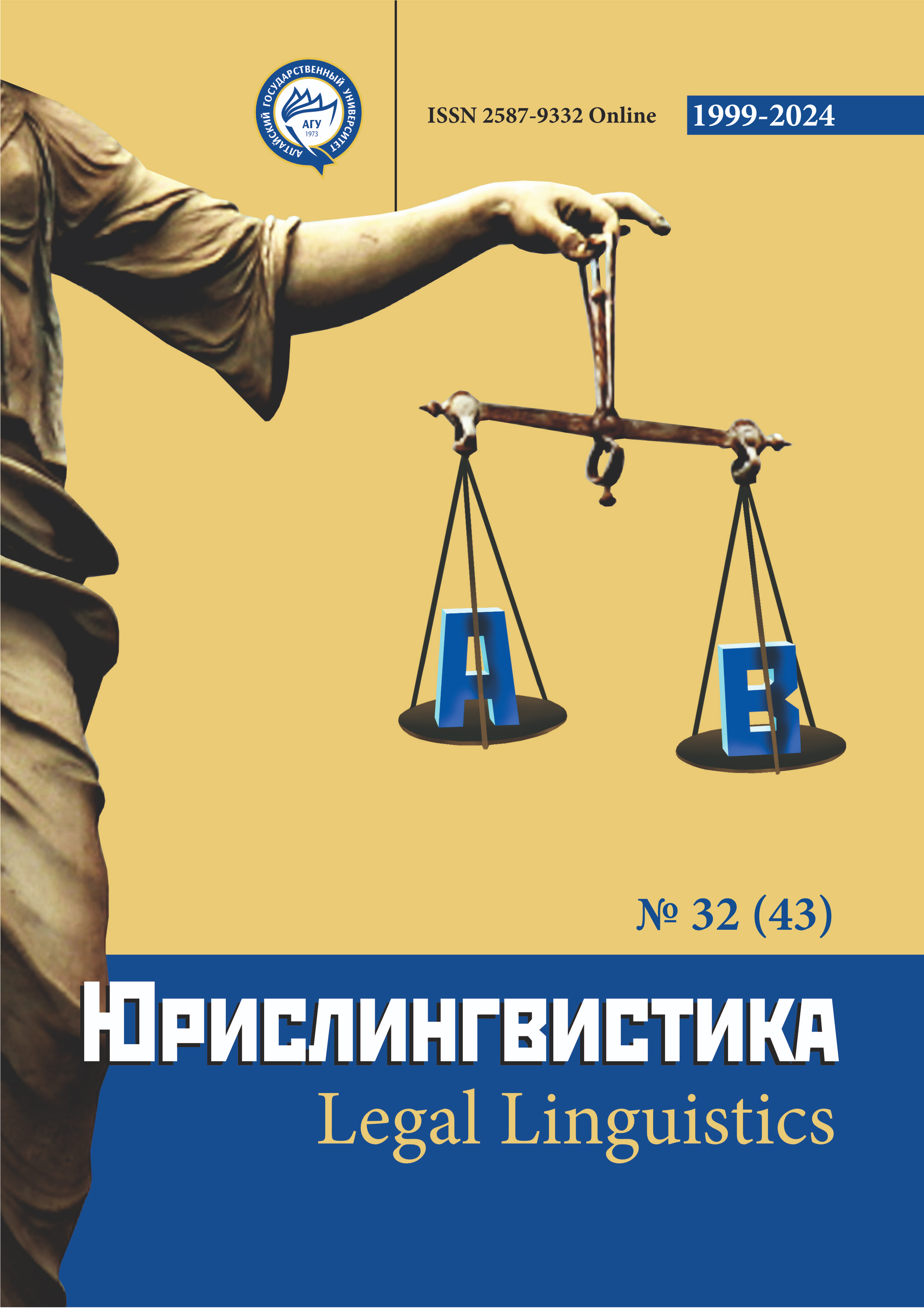On the Content of the Concept of “Ecological Tourism” in Russian Legislation
УДК 349.6, ББК 67.407
Abstract
The article analyzes policy documents and regulatory legal acts of the Russian Federation containing the concept of “ecological tourism”. It is noted that the importance of eco-tourism has been reflected for quite a long time in acts of various nature. It is indicated that the implementation of the provisions of the Tourism Development Strategy in the Russian Federation for the period until 2035 requires further reform of Russian legislation in terms of changing approaches aimed at developing eco-tourism.Studying the current legislation, the authors come to the conclusion that there are shortcomings in regulations that impede effective legal influence on the development of eco-tourism. The authors analyze the concepts of ecological tourism enshrined in various legal acts, the goals of this type of tourism and come to the conclusion that there is no clear approach to the definition of the concept in question.To identify the specifics of ecological tourism, the article also examines the concepts of “nature tourism”, “rural tourism”, “cultural and educational tourism”, and an attempt is made to distinguish between these types of tourism and ecological tourism by clarifying the similarities and differences. Considering the types of ecological tours established in legal acts, the authors point out the ineffectiveness of the proposed classifications.According to the authors, the importance of solving the problem of a clear definition of the concept of “ecological tourism” is also conditioned by the fact that, according to the current legislation, one of the tasks of specially protected natural areas (federal nature reserves and national parks) is the organization and implementation of tourism. Considering the environmental significance of these areas of nature, the solution to this problem is relevant and necessary for the effective regulation of relations in the field of tourism and environmental activities.
Downloads
Metrics
References
Васильева М. И. К юридическому определению понятия экологического туризма / Lexrussica. – 2020. – Т. 73. – № 4. URL: https://cyberleninka.ru/article/n/k-yuridicheskomu-opredeleniyu-ponyatiya-ekologicheskogo-turizma
ГОСТ Р 56642-2021 Национальный стандарт РФ «Туристские услуги. Экологический туризм. Общие требования». URL: https://docs.cntd.ru/document/1200182520
ГОСТ Р 57287-2021 Национальный стандарт РФ «Туристские услуги, предоставляемые на особо охраняемых природных территориях. Требования». URL: https://docs.cntd.ru/document/1200182521
О внесении изменений в отдельные законодательные акты Российской Федерации: Федеральный закон от 18 марта 2023 г. № 77-ФЗ. URL: https://www.consultant.ru/document/cons_doc_LAW_442360/
О развитии внутреннего и въездного туризма как факторе экономического роста Российской Федерации: Постановление Совета Федерации ФС РФ от 30 мая 2018 г. № 188-СФ. URL: https://www.consultant.ru/cons/cgi/online.cgi?req=doc&base=EXP&n=719266#rY6Zr7UoL2lR8OX01
О развитии сельского хозяйства: Федеральный закон от 29 декабря 2006 г. № 264-ФЗ. URL: https://www.consultant.ru/document/cons_doc_LAW_64930/
Об объектах культурного наследия (памятниках истории и культуры) народов Российской Федерации: Федеральный закон от 25 июня 2002 г. № 73-ФЗ. URL: https://www.consultant.ru/document/cons_doc_LAW_37318/
Об основах туристской деятельности в Российской Федерации: Федеральный закон от 24 ноября 1996 г. № 132-ФЗ. URL: https://www.consultant.ru/document/cons_doc_LAW_12462/
Об особо охраняемых природных территориях: Федеральный закон от 14 марта 1995 г. № 33-ФЗ. URL: https://www.consultant.ru/document/cons_doc_LAW_6072/
Об охране окружающей среды: Федеральный закон от 10 января 2002 г. № 7-ФЗ. URL: https://www.consultant.ru/document/cons_doc_LAW_34823/
Об утверждении Концепции федеральной целевой программы «Развитие внутреннего и въездного туризма в Российской Федерации (2019-2025 годы)»: Распоряжение Правительства РФ от 5 мая 2018 г. № 872-р. URL: https://www.consultant.ru/document/cons_doc_LAW_297883/
Об утверждении плана мероприятий по реализации в 2013-2015 годах Стратегии государственной национальной политики Российской Федерации на период до 2025 года: Распоряжение Правительства РФ от 15 июля 2013 г. № 1226-р. URL: https://www.consultant.ru/document/cons_doc_LAW_149524/
Об утверждении Стратегии развития туризма в Российской Федерации на период до 2035 года: Распоряжение Правительства РФ от 20 сентября 2019 г. № 2129-р. URL: https://www.consultant.ru/document/cons_doc_LAW_333756/
Оленина Т. Ю. Правовые основы развития экологического туризма как направления экологического просвещения в особо охраняемых природных территориях / Туризм: право и экономика. – 2020. – № 1. С. 11–13.
План мероприятий по продвижению туристского продукта Российской Федерации на мировом и внутреннем туристских рынках, реализуемых при поддержке Федерального агентства по туризму в 2017 году (утвержден Ростуризмом 25.01.2017). URL: https://www.consultant.ru/cons/cgi/online.cgi?req=doc&base=EXP&n=682119#dgiWr7UU7nvnoZ331
Погодина И. В., Баранова А. Ф. Экотуризм: необходимость определения и регулирования / Туризм: право и экономика. – 2019. – № 4. С. 21-23.
Copyright (c) 2024 Ольга Трубникова, Наталья Калашник

This work is licensed under a Creative Commons Attribution 4.0 International License.
The authors, which are published in this journal, agree to the following conditions:
1. Authors retain the copyright to the work and transfer to the journal the right of the first publication along with the work, at the same time licensing it under the terms of the Creative Commons Attribution License, which allows others to distribute this work with the obligatory indication of the authorship of this work and a link to the original publication in this journal .
2. The authors retain the right to enter into separate, additional contractual agreements for the non-exclusive distribution of the version of the work published by this journal (for example, to place it in the university depository or to publish it in a book), with reference to the original publication in this journal.
3. Authors are allowed to post their work on the Internet (for example, in a university repository or on their personal website) before and during the review process of this journal, as this may lead to a productive discussion, as well as more links to this published work (See The Effect of Open Access).











